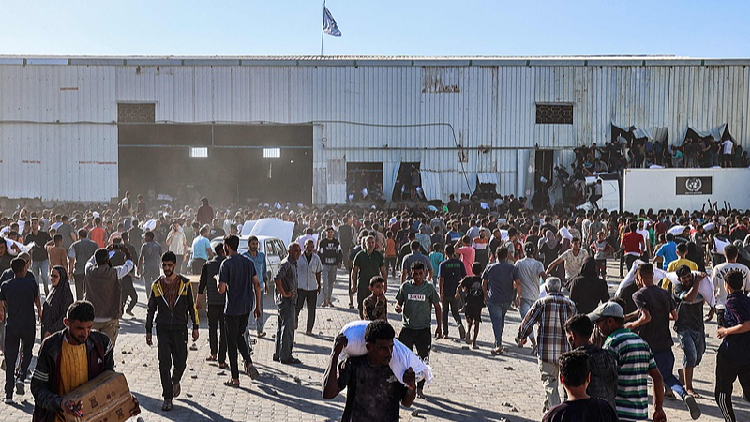Hamas Announces Agreement with U.S. on Gaza Ceasefire Framework Amid Rising Tensions
Hamas announces agreement with U.S. envoy on Gaza ceasefire framework, raising hopes for renewed peace talks.

The ongoing humanitarian crisis in the Gaza Strip intensified this week as Hamas announced the outlines of a potential ceasefire framework negotiated with U.S. Special Envoy to the Middle East, Steve Witkoff. According to Hamas officials, the proposed framework would include the release of 10 Israeli hostages and several bodies held by the group, in exchange for the liberation of an unspecified number of Palestinian prisoners. The deal would also guarantee the withdrawal of Israeli forces, unfettered access for humanitarian aid, and oversight of Gaza’s affairs by a newly formed professional committee immediately after the agreement comes into effect.
Despite the announcement from Hamas, uncertainty remains over the true status of the agreement. While Hamas stated it is awaiting a final response and reiterated its commitment to halting the violence, Steve Witkoff publicly denied that any agreement had been finalized or accepted by the Palestinian group. Israel, meanwhile, has yet to issue an official response but officials quoted in various outlets have indicated a rejection of the current proposal, citing long-standing conditions for ending the war.
Prime Minister Benjamin Netanyahu’s administration remains firm on its prerequisites for peace: the removal of Hamas from governance in Gaza, disarmament of all militant factions, and the exile of Hamas leaders from the territory. Regional analysts argue that these stipulations represent a significant barrier to any immediate end to hostilities. “There is an Israeli consensus on these conditions with the U.S. administration, making it unlikely for Netanyahu to stop the war unless the conditions are met,” noted Abdel Mohdy Motawe, an expert on Middle Eastern strategic affairs.
As diplomatic efforts stall, the crisis on the ground continues to deepen. More than 11 weeks of blockade have crippled life in Gaza, leaving much of the population dependent on increasingly scarce humanitarian aid. This week, two food distribution centers established by private U.S. companies began operations under Israeli military oversight in southern Gaza, after a brief pause in the siege allowed some limited supplies to trickle in. However, the desperation among residents was on full display as thousands gathered at a center in Rafah, the scene quickly descending into chaos as crowds surged past security barriers to obtain vital provisions.
International humanitarian agencies expressed concern about the efficacy of these new private initiatives. Jens Laerke, spokesperson for the UN Office for the Coordination of Humanitarian Affairs, emphasized that the United Nations is not involved in these operations, cautioning that such measures do not address the core needs of the population. “It is a distraction from what is actually needed,” Laerke said at a press briefing. He called for the reopening of all border crossings to enable unrestricted flow of aid—an urgent appeal as experts warn of famine spreading through Gaza’s densely populated neighborhoods.
With negotiations at a standstill and humanitarian relief insufficient, the people of Gaza remain caught in the crossfire of protracted conflict, their fate now hinging on whether diplomatic efforts can bridge the wide gaps between all sides and bring lasting respite.




